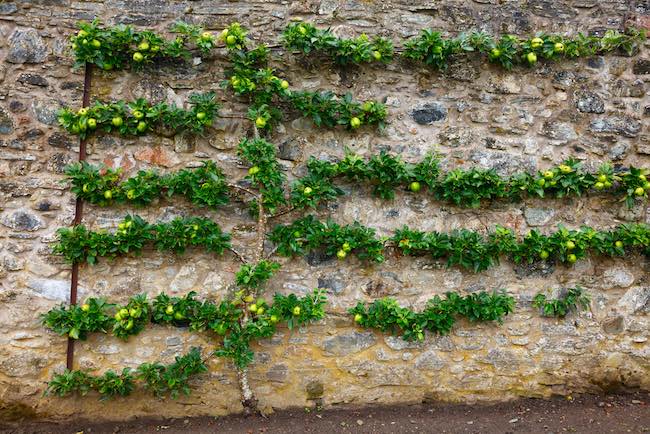Ants and Aphids on the fruit trees

How to Control Aphids and Ants on Pear Trees Naturally and Effectively
Aphids are a common pest on pear trees, and if left unchecked, they can quickly multiply and damage young shoots, leaves, and even fruit. Fortunately, there are effective, natural methods to manage them while also addressing the root of the problem — ants that protect aphids from their natural predators.
Here’s a practical, organic approach to aphid control using a combination of cultural practices, physical removal, and biological solutions.
Cultural Practices: Prevention Is Key
1. Companion Planting
Nature provides great allies in the fight against aphids. By planting certain herbs and flowers around your pear tree, you can either repel aphids or lure them away:
- Nasturtiums act as a trap crop, drawing aphids away from your pear tree.
- Chives, garlic, or onions give off a strong scent that naturally repels aphids.
2. Keep Your Tree Healthy
A stressed tree is a target for pests. Support your pear tree’s natural defences by:
- Watering deeply and less frequently – This encourages strong root growth and avoids soft, sappy new shoots that aphids love.
- Pruning excessive growth – Improves air circulation and light penetration, making the environment less appealing for aphids.
💧 Physical and Manual Control: Simple but Effective
1. Strong Water Spray
- Use a firm jet of water to blast aphids off leaves, especially in the early morning so the foliage has time to dry.
2. Manual Removal
- For small infestations, wipe off aphids by hand or prune and remove affected shoots.
3. Sticky Barriers for Ant Control
- Apply sticky bands like Tanglefoot around tree trunks. These traps stop ants from climbing the tree to protect aphids, allowing natural predators like ladybirds and lacewings to do their job.
🧴 Organic Sprays: Safe and Natural Aphid Treatments
1. Homemade Garlic or Chilli Spray
Aphids dislike pungent scents and spicy compounds.
- Blend garlic or hot chilli with water.
- Let it steep overnight, then strain and spray onto affected leaves.
- Tip: Test on a small area first to ensure no damage to the plant.
2. Insecticidal Soap
- Specially formulated to target soft-bodied insects like aphids.
- Spray directly onto the pests, focusing on the undersides of leaves.
3. Neem Oil
- A powerful natural insecticide that disrupts aphid hormone cycles.
- Mix according to product instructions and spray in early morning or late afternoon to avoid leaf burn.
🐜 Ant Control: Stop the Aphid Farm
Did you know ants actively farm and protect aphids? They feed on the sweet honeydew aphids produce and defend them from predators. Controlling ants is crucial to long-term aphid management.
We recommend using Nemasys No Ant Nematodes — a natural and chemical-free way to reduce ant populations in your garden. These microscopic nematodes target ant colonies directly in the soil, disrupting their activity and stopping them from protecting aphids.
The Integrated Approach
To keep your pear trees aphid-free:
- Repel or trap aphids using companion plants and homemade sprays.
- Manually remove visible infestations and prune problem areas.
- Stop ants from protecting aphids using sticky barriers and Nemasys No Ant Nematodes.
By combining these methods, you’ll restore balance in your garden, allowing nature’s pest control team to do the rest.
Want more eco-friendly gardening tips? Contact us for tailored advice, or explore our full range of organic pest control solutions.